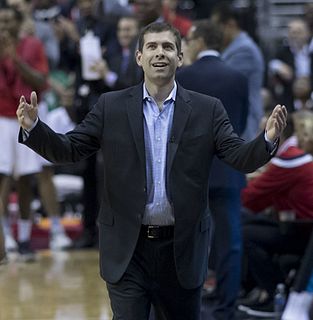A Quote by Troy Carter
It isn't that every company is going to be successful. The law of averages shows that 80% of companies are going to fail.
Quote Topics
Related Quotes
I came to understand and observe that we're all going to face obstacles. We're going to have challenges. We're going to fail. We're going to have success. But all of it is going to ultimately be character-building. And it's not going to deter us from wanting to achieve, to strive, and be successful.
One thing that I've realized is that you're never going to be 100 percent successful. You're always going to be let down. When you have God in your life and you follow Christ, you're never going to be let down. Every time that you fail, He's there to pick you right back up. Every time you think the world's going to end because you had a couple of bad games, God's there to remind you that's not what it's all about.
Successful people just don't let failure define them or keep them from doing what they want to do. For example, I'd have people come up to me after my shows, and they'd say they want to do stand-up but are scared they're going to fail. I'd tell them, "You are going to fail, and anyone who is success has powered through many, many failures."
I was working with an extraordinarily successful company that was doing a CEO succession, and the board was discussing the threats to the business. They were enormous, despite the company's strong market position. I then realized that there were no longer just turn-around periods for companies in trouble, that now variables that could drastically effect any business's profitability were not going to go away.
We were the ultimate consumers of the thing, and we thought, "Every college kid is going to go berserk. High school kids - it will introduce them to music they didn't know about. This is going to be a phenomenon." Plus, it seemed like it was insider-y, yet it was available to everyone. I thought, "Cable companies are going to be snatching this up." You think about the dreck that is on so many cable companies, of course they're going to love this. And we were just crushed that nobody cared.
I wanted to project myself forward to age 80 and say, ‘OK, I’m looking back on my life. I want to minimise the number of regrets I have.’ And I knew that when I was 80, I was not going to regret having tried this. I was not going to regret trying to participate in this thing called the Internet that I thought was going to be a really big deal. I knew that if I failed, I wouldn’t regret that. But I knew the one thing I might regret is not ever having tried. I knew that that would haunt me every day.




































